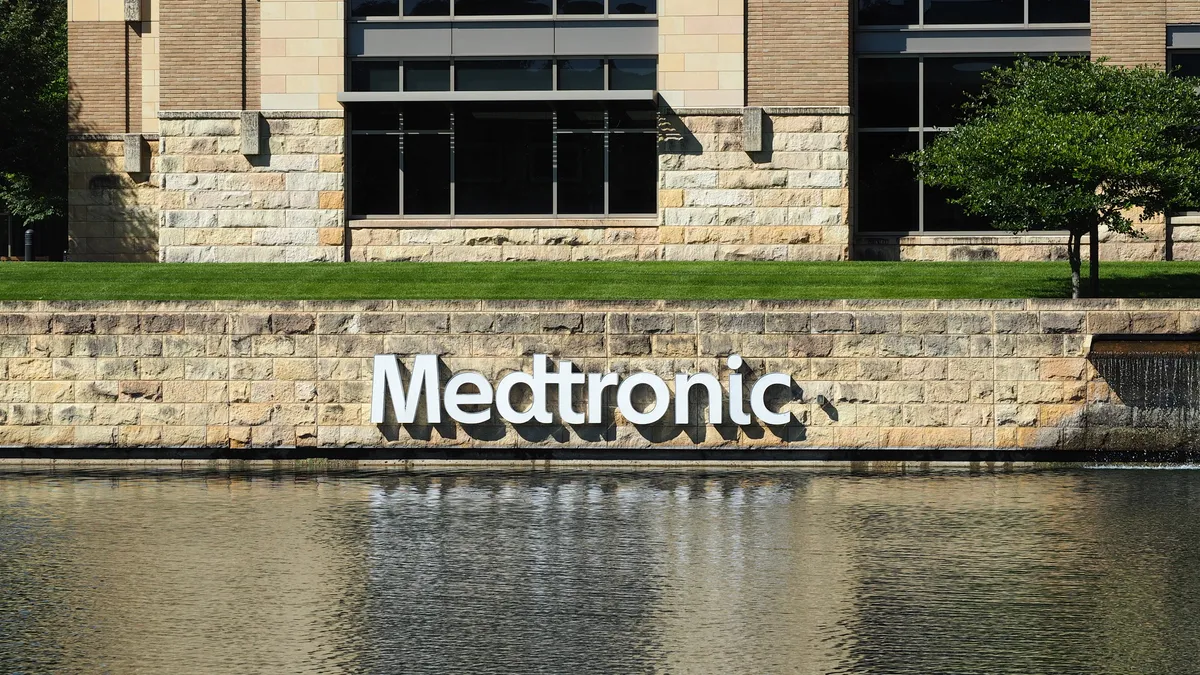Supply chain improving
Medtronic said on Tuesday that supply chain issues are starting to improve after grappling with shortages in tray packaging and resins.
Medtronic has worked through some of its immediate supply chain problems and built out its manufacturing capacity, CEO Geoff Martha said in a earnings call for the company’s fiscal first quarter. However, shortages of semiconductors are expected to linger through the rest of the Medtronic’s fiscal year.
“This quarter was a big quarter for us,” Martha said. “We made quite a bit of progress on some of the supply chain concerns that we had, in some cases specific issues we had to resolve, and building our manufacturing capacity as well.”
Medtronic has co-located about 100 of its employees with its top suppliers to ensure the company is prioritized. It also has begun working directly with raw material suppliers to lock in contracts rather than going through middlemen, he added.
“We're not totally out of the woods yet, but our back-orders are coming down,” Martha said.
Revenue declines across segments
Revenue decreased in each of Medtronic’s portfolios compared to the year-earlier period as reported:
- Cardiovascular: revenue of $2.71 billion; 6% decrease year-over year
- Medical surgical: revenue of $2 billion; 14% decrease
- Neuroscience: revenue of $2.12 billion; 4% decrease
- Diabetes: revenue of $541 million; 5% decrease
The company saw “lesser than expected softness” in its cardiac rhythm management and structural heart business, RBC Capital Markets Analyst Shagun Singh wrote in a research note on Tuesday.
In the medical surgical business, revenue declined in both the surgical innovations division and the respiratory, gastrointestinal and renal unit, because of supply chain shortages and COVID-19 lockdowns in China, RBC noted.
Medtronic’s diabetes segment is still working through a warning letter from the Food and Drug Administration about problems with the MiniMed 600 series insulin pump devices. Martha said the Medtronic had completed more than 90% of the remedial actions required by the agency.
The company has trained the first group of sales people for its diabetic peripheral neuropathy treatment, which was approved by the FDA in January, and it is in “active conversations” with the FDA about its newest insulin pump, the MiniMed 780G, Martha added.
“Our short-term focus is remediating the warning letter and also making progress with the FDA around approval of the 780G and Guardian 4 sensor system,” said Que Dallara, president of Medtronic’s diabetes unit. “We continue to be encouraged by that, making good progress, and so our hope is that we can remediate that and secure approval in the near term.”
Forecast stays the same
Medtronic said it’s maintaining its revenue forecast for fiscal year 2023, which ends in April. It expects organic revenue growth of 4% to 5%, which excludes foreign-exchange impacts. The company also expects diluted earnings per share of $5.53 to $5.65.
A potential spinout?
Needham analysts suggested in an Aug. 19 research note that Medtronic’s diabetes and spine businesses could be considered either for sale or spin-off, although they wouldn’t expect an immediate benefit for shareholders.
When asked about portfolio management on the earnings call, Martha said the company is looking at both the buying and selling side, highlighting it’s recent joint venture with DaVita that would incorporate Medtronic’s renal care solutions business.
“We're definitely continuing to look at the whole portfolio more intently and we've been doing that for several months now,” Martha said.












